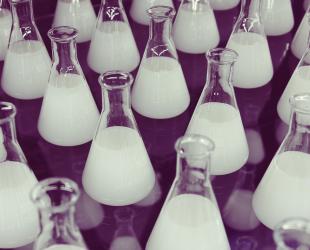Does your baby like to pick up anything and everything and put it into their mouth?
This may actually be a way to keep them healthy!

Breastfeeding and bacteria. It may not be a combination you may think of as being important for a new baby. But it actually may be very important.
The gut microbiome in our body is far more complex than our genetic makeup. The gut microbiome is the collection of healthy microorganisms that live in the gut. More research is showing how our gut microbiome may play an important role in many aspects of our physical and emotional wellbeing. It seems that our gut microbiome may be able to influence many cells of our body and in doing so influence our overall health. An unhealthy and less diverse gut microbiome has been observed in conditions such as obesity, diabetes and allergy.
Our environment can influence our gut microbiome. So can events that happen and don’t happen, especially in our early years. Exclusive breastfeeding helps a baby to develop a healthy and diverse gut microbiome. Bacteria (probiotics) from the mother get passed on to the baby during breastfeeding - from the mother’s skin and her breastmilk. Significant differences exist in the gut microbiota of babies who are exclusively breastfed compared to those given formula.
Breastmilk contains about 200 different types of oligosaccharides (prebiotics), which provide food for the good bacteria in the gut. Our genes carry ‘memories’ from past generations (called ‘epigenetics’). So, who we are today is a result of who our past generations were – up to three generations back at least!
The breastmilk you provide for your baby has a positive impact on not only them but also their children!
© Australian Breastfeeding Association May 2022
Aagaard, K., Ma, J., Antony, K.M., Ganu, R., Petrosino, J., Versalovic, J 2014, The placenta harbors a unique microbiome. Science Translational Medicine 6:237,65.
Azad, M.B., Konya, T., Maughan, H., Guttman, D.S., Field, C.J., Chari, R.S., Sears, M.R., Becker, A.B., Scott, J.A., Kozyrskyj, A.L., on behalf of the CHILD Study Investigators 2013, Gut microbiota of healthy Canadian infants: profiles by mode of delivery and infant diet at 4 months. CMAJ 85(5),385–394.
Jeurink, P.V., van Bergenhenegouwen, J., Jiménez, E., Knippels, L.M.J., Fernández, L., Garssen, J., Knol, J., Rodríguez, J.M., Martín, R 2013, Human milk: a source of more life than we imagine. Beneficial Microbes 4(1),17–30.
Kerr ,C.A., Grise, D.M., Tran, C.D., Bauer, D.C., Li, D., Hendry, P., Hannan, G.N 2014, Early life events influence whole-of-life metabolic health via gut microflora and gut permeability. Critical Reviews in Microbiology 1–15 DOI: 10.3109/1040841X.2013.837863.
Ninonuevo, M. R., Park, Y., Yin, H., Zhang, J., Ward, R. E., Clowers, B. H., ... & Lebrilla, C. B. (2006). A strategy for annotating the human milk glycome. Journal of Agricultural and Food Chemistry, 54(20), 7471-7480.
Tow, J 2014, Heal the mother, heal the baby: epigenetics, breastfeeding and the human microbiome. Breastfeeding Review 22(1),7–9.


